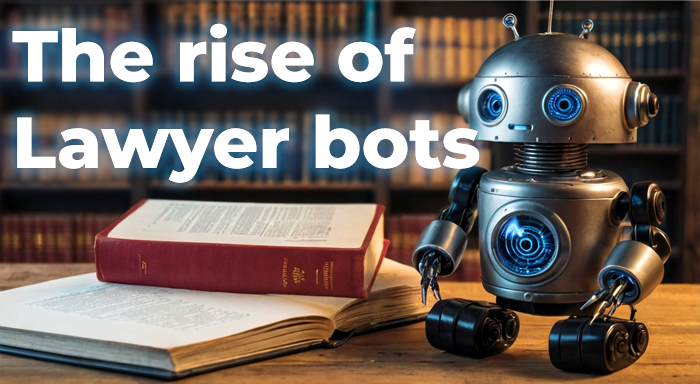The legal industry of today can be described as being in a state of transition, as we have seen above. The automation of law practices has been led by the use of AI tools that have altered the working of legal professionals. Typically, legal services are characterized by a high level of labor
intensity where practitioners invest a great deal of time searching for information, reviewing documents, and preparing cases. This has, however, been changed by the rise of AI legal bots and AI lawyers that promote efficiency and cost reduction in the services offered.
The problem with traditional legal services
Traditional legal services and what they are made of are best described by three parameters: high cost, long time, and complicated procedures. So, this option is often beyond the reach of most people and business entities because legal aid can be very costly. This barrier has made many people either abandon getting legal help altogether or gamble away in the legal process possibly resulting in adverse results. Besides, the conventional approaches to legal research and documentation often carry a high risk of human errors together with taking considerable Time.
The cost barrier
Traditionally, the cost of legal services is considered one of the most critical concerns. The same report conducted by Clio, a legal practice management software company in 2019, found out that lawyers in the United States charge an average of $300 per hour. In complex matters, it can go up to the thousands of dollars thereby becoming expensive for most people to seek legal help. This financial obstacle hinders people from getting legal assistance, a situation whereby one has to be rich to get justice.
Time-consuming processes
The legal profession is often accused of being slow, and these delays can have dire
consequences. In some cases, the duration of court cases can extend to months and even years because of the elaborate investigations and paperwork. Even a basic case requires a significant amount of time to formulate by analyzing legal statutes, precedents, and case laws. This results in expenses for the clients in addition to delaying justice. Additionally, since these activities must be completed by hand, there is a chance that mistakes will be made, which could have serious repercussions during the legal procedure.
Opinions and solutions: The rise of AI tools for legal work
As a result, the AI tools for legal tasks became the real game-changers. These tools can undertake a portfolio of jobs that would have earlier required the services of an actual lawyer. Here are some of the key solutions available on the market:
Document Review and Analysis: Automated methods enable users to search for the information that is contained in documents within a limited amount of time. It not only makes it easier and faster, but also there is also cutting down on the chances of making an error. Some firms including LawGeex employ AI to review contracts for compliance and to identify possible Problems.
Legal Research: Another example of the implementation of AI technology is ROSS Intelligence, which helps lawyers find the case laws and statutes needed in a rather brief time compared to the manual search. This makes it possible for the lawyer to spend much more time on strategy than wandering throughout the library looking for materials to use in the case.
Chatbots and Virtual Assistants AI can utilize past information regarding cases and give the probabilities of certain legal cases. By doing this, it assists the lawyers in coming up with better plans for handling the case, and on the other hand the clients can know the realistic outcomes. Lex Machina is a legal analytics company that leverages AI on the data on trends and outcomes in litigation.
Predictive Analytics: AI can analyze past case data to predict outcomes of legal disputes. This helps lawyers develop more effective strategies and provides clients with realistic expectations.
Lex Machina, a leader in legal analytics, uses AI to provide insights into litigation trends and
Outcomes.
The ethical implications of AI in law
Just like any other technology that is employed in today’s world, some ethical issues arise with the application of AI tools for legal purposes. Among the challenges that need to be taken into account are; Data protection, how AI systems are developed to be impartial, and how AI systems will be held
responsible for their decisions.
Data privacy
Nowadays, legal cases imply the use of various documents containing various private and top-secret information. The protection of this data is quite sensitive hence the privacy and security of the data is paramount. Privacy laws should be enacted on AI and other uses of data to minimize instances of break-ins by unauthorized persons.
However, AI deployed within legal firms attracts various security issues that necessitate the realization of applicable legal provisions, including the GDPR on the protection of personal data corresponding to the clients.
Bias in AI algorithms
It is important to note that unless an AI is trained with accurate data, the information and advice it gives is only as accurate as the data it feeds on. In the training process, different criteria will be given higher consideration if they are usually reflected in the selected training set, and depending on the training data set, the AI will also make biased decisions.
This is a big issue in the legal profession mainly because lawyers are supposed to offer their services impartially and fairly. Lecturers working on AI technologies must ensure that their AI models are designed based on fair data to avoid biases. Finally, contain and control its known operations so that
biases can be easily spotted; reporting procedures of the AI’s operations must also be free to prevent any form of bias.
Accountability of AI decisions
Problems arise when artificial intelligence is combined with the legal profession; who and what is responsible? In the case that an AI committed an error, then who is to blame? AI primarily needs well-defined rules and principles to set the stages of organization based on the responsibility of artificial intelligence.AI undoubtedly has numerous advantages, but legal professionals must also recognize that there are certain negatives and should exercise caution when working with AI. Algorithms require human supervision to make certain that they are properly in the legal and ethical frameworks.
Personal opinion: Embracing the future of law
While witnessing these innovations, one can conclude that like all lawyerly professions, AI lawyers and lawyer bots are not intended to replace human lawyers, but rather to enhance them. AI comprises the acquisition of data-driven solutions that enable lawyers to mix and merge various operations and processes, allowing them to dedicate more time to more important or difficult tasks. It also raises the standard of legal services provided to customers while enhancing efficiency.
There is a perception of the potential negative effects that AI stands to present within the legal line of work and employment. But experience has proved that advancement in the use of technology avails new chances and assigns then some roles do not exist anymore. Lawyers who adopt these tools will most probably be in a vantage position in roles of making the legal profession more proactive.
Conclusion:
AI’s interjection into legal undertakings is a new front on practicing law as a profession. The legal use of lawyer bots and AI lawyers is revolutionizing the traditional practice of legal service since it increases the delivery rates as well as the efficiency at low costs. As such, assuming these technologies are still to advance as predicted, there is no doubt that they are poised to assume a much even significant role in the future of the legal profession.
For law firms and legal professionals, the message is clear: It may not be a certainty that technology is constantly advancing but it has come to be the norm, it is therefore important for one to either embrace change and embrace the advancements or just sit and watch the world pass by. In this way, the question of the interaction of the law with technology can be viewed as a new movement of a new form of artificial intelligence that shapes the future of legal work.
Related Post:
An overview of robust software CRM for Law firms to manage everything








